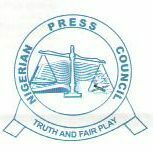The two-day workshop on 2011 General Election: Expectations from the Media organised by the Nigerian Press Council (NPC) in collaboration with the International Republican Institute (IRI) was held at All Seasons Hotel, Owerri on March 28-29, 2011. One hundred participants drawn mostly from the print and some electronic media in the South-East and South-South states ofNigeriaand thirteen resource persons appraised the role of the media in the election process and their operating environment and made the following observations:
- That the media is critical to the successful conduct of the 2011 general election and therefore it is ethically and constitutionally imperative on the media to insist on reporting the truth, in strict compliance with the time-honoured principles of objectivity, balance and fairness.
- That the choice of the nation having a free and fair election rests ultimately with the Nigerian people, especially politicians. The role of INEC forms only 30% of delivering a credible election.
- That the media should focus on the electoral officials in the 774 Local Government Areas because they are critical to credible elections.
- That the media remains the most potent organ for dissemination of information and therefore journalists are enjoined to study comprehensively the Electoral Act and all other legal provisions, including the 1999 Constitution as amended in order to report objectively.
- That election is a process which culminates in declaration and resolution of disputes arising therefrom. Thus, effective coverage of the cycle entails the countinuous provision of timely, accurate information before, during and after the polls, until all post-election disputes are resolved and winners inaugurated.
- That the circulation of different versions of the amended Electoral Act 2010 and the 1999 Constitution as amended is confusing and does not provide the appropriate legal framework to guide the conduct of elections.
vii. That the deployment of Electoral Officers close to elections does not give the affected officers adequate time to familiarise themselves with their operating environment before the election, and might hamper the smooth conduct of the election.
viii.That journalists should avoid unauthorised announcement or extrapolation of election results which might mislead the public.
- That journalists have a responsibility to highlight flaws or challenges to free and fair election so that INEC and relevant institutions could remedy them.
- That in spite of the resource endowments of the nation, the level of infrastructural decay and inadequacies have continued to pose enormous challenges to our electoral process.
- That intolerance amongst the political class and the constraints of media ownership especially those involved in partisan politics tend to undermine objective reporting.
Consequently, participants resolved as follows:
- That the media should be conscious of its responsibility under Section 22 of the 1999 Constitution as amended and discharge this role effectively.
- That journalists should familiarise themselves with the extant laws which guide the electoral process to ensure the sanctity of the ballot.
- That in view of the confusion caused by the existence of various versions of the Electoral Act 2010, the Federal Ministry of Information and Communcations should ensure the availability of the gazetted copy.
- That political parties, INEC and other stakeholders should intensify the sensitisation of voters as majority of the people are yet to fully understand the voting procedure.
- That the media should engage in massive sensitisation of the people on the modified Open-Secret ballot system, especially as it affects accreditation, voting and vote counting.
- That there is need for increased enlightenment of the populace on the various electoral processes by public enligntenment agencies such as the National Orientation Agency (NOA), federal and state ministries of information, etc.
- That the media needs to take the issue of fairness to all political parties/actors as a fundamental principle. They should hold political parties accountable to their manifestos.
- That media professionals should accord adequate regard to ethics and professionalism in the coverage of political activities.
- That journalists should avoid conflict of interests so as not to compromise truth, integrity, and their safety.
10. That only reporters that have been properly trained should be saddled with the responsibility of covering elections, because election reporting is a specialised field.
- That training and retraining of journalists should be continuous to build their capacity to educate voters and guide them to make informed electoral choices.
- That each media house should set up a properly funded election desk, with specified pages/airtime devoted to issues surrounding the elections on regular basis.
- That INEC should devise improved strategies for dealing with logistics challenges to avoid delays in the movement of personnel and materials and the resultant disenfranchisement of voters.
Finally, participants commended the NPC and the IRI for organising the workshop, and urged them to sustain the initiative in order to enhance the capacity of journalists to respond appropriately to the onerous challenge of election reporting in the interest of enduring democracy and a better society.
Dr. Kate Azuka Omenugha M. ‘Bayo Atoyebi Boniface Okechukwu Obeta
(for Resource Persons) (for NPC) (for participants)
